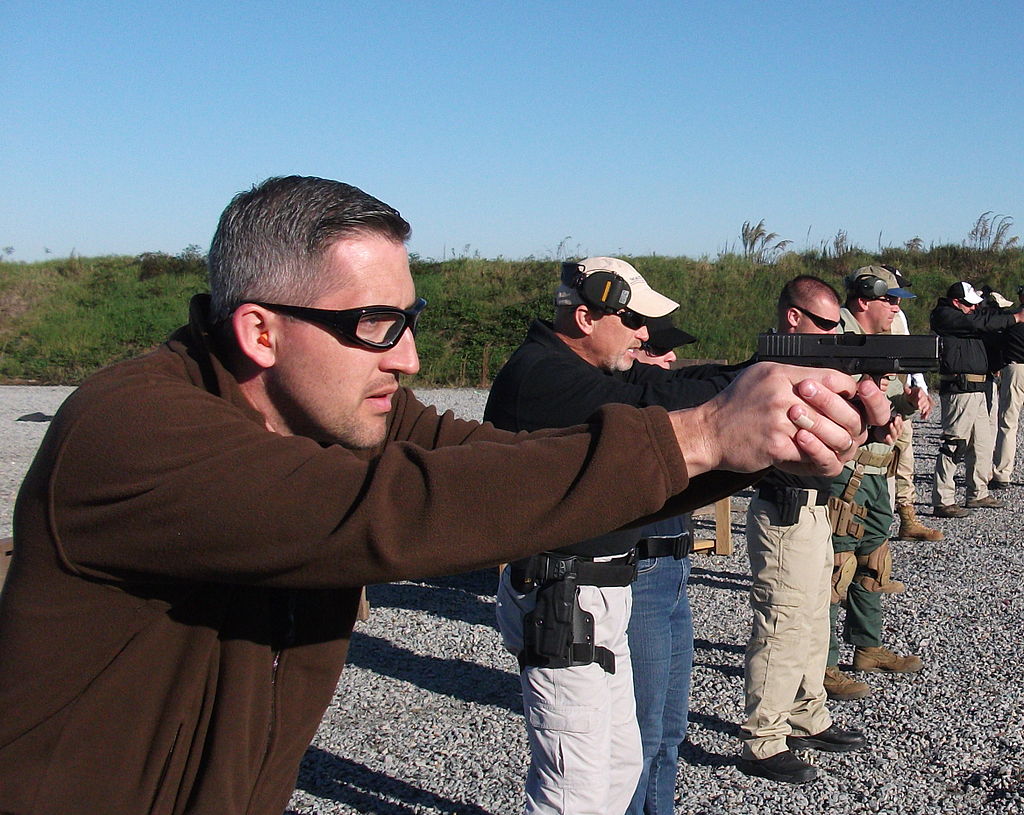Blackwater is probably the highest profile security company known around the water thanks to the scandals in Iraq, so whatever happened to them?
Well let’s start from the beginning. Blackwater was founded in 1997 by former Navy SEAL officer Erik Prince and Navy SEAL firearms instructor, Al Clark. The headquarters were setup in North Carolina and the original mandate was to provide training support to military and law enforcement organizations. Blackwater initially worked with training SEAL and SWAT teams and then received a government contract following the bombing of the USS Cole off the coast of Yemen in 2000.
In 1998, Blackwater purchased a 7,000 acre swamp on the North Carolina-Virginia border. They used most of the land to make a $6.5 million training facility which included several ranges: indoor, outdoor, urban reproductions, an artificial lack, and a diving track. The training facility would not be a financial success and was largely kept a float thanks to other ventures.

In 2002, Blackwater expands their operation with the Blackwater Security Company subsidy. Their first contract is to provide 20 men with top secret clearance to protect the CIA headquarters and another base that was responsible for hunting Osama bin Laden. Things expand quickly wit the US invasion of Iraq and Afghanistan with Blackwater being one of the major private security firms employed in the two theatres. Initially the objective is to guard officials and installations, train Iraq’s new army and police , and provide support for coalition forces. It is estimated the company received over $1 billion US dollars in US government contracts. So where did things go wrong?
In 2004, Iraqi insurgents in Fallujah ambushed 2 SUVs killing four armed Blackwater contractors inside. The locals then hung the charred bodies above a bridge. In turn, US Marines attacked the city in Opeartion Vigilant Resolve which became the first Battle of Fallujah. In the fall of 2007, a congressional report by the House Oversight Committee revealed Blackwater intentionally delayed and impeded investigations into the contractors’ deaths. However the report also found the Iraqi Civil Defense Corps led the team into an ambush and facilitated blocking positions to prevent the team’s escape. Ahmad Hashim Abd al-Isawi was later deemed the mastermind terrorist behind the attack and captured, then executed by an Iraqi court.
In 2005, four Blackwater guards escorting a US State Department convoy in Iraq opened fire onto a Iraqi civilian car. It is estimated 70 rounds were fired into the car and the Blackwater guards advised they felt threatened when the driver ignored orders to stop as he was approaching the convoy. An investigation by the State Department’s Diplomatic Security Service concluded the shooting was not justified and the guards had provided false statements to investigators.

in 2007, the Iraqi government revoked Blackwater’s license to operate in Iraq after a massacre in Nisour Square, Baghdad. Blackwater contractors were later convicted of killing 17 Iraqi civilians in this incident which occurred when Blackwater was escorting a convoy of US State Department vehicles en route to a meeting in western Baghdad. This seemed to be the final nail in the coffin for Blackwater. There was pressure on Congress and the rest of the US government to make changes. As a result in 2009, Blackwater announced it would be renamed as Xe Services LLC as part of a restructuring plan. The company added a corporate governance and ethics program and established an independent committee of outside experts to supervise compliance structures. At this time Prince also resigned as CEO. Furthermore in 2010, a group of private investors purchased Xe and built a new company, Academi around it. Then in 2014, Academi merged with another company, Triple Canopy under the Constellis Holdings Inc. The company continues to operate under the name Academi and new management today.


